-
 bitcoin
bitcoin $109523.663807 USD
-0.13% -
 ethereum
ethereum $4019.526508 USD
2.06% -
 tether
tether $1.000482 USD
0.00% -
 xrp
xrp $2.776815 USD
0.18% -
 bnb
bnb $958.942396 USD
0.12% -
 solana
solana $204.294698 USD
3.84% -
 usd-coin
usd-coin $0.999693 USD
0.00% -
 dogecoin
dogecoin $0.232115 USD
2.09% -
 tron
tron $0.338028 USD
0.84% -
 cardano
cardano $0.790920 USD
1.50% -
 hyperliquid
hyperliquid $44.871443 USD
5.60% -
 ethena-usde
ethena-usde $1.000322 USD
0.04% -
 chainlink
chainlink $21.034165 USD
2.60% -
 avalanche
avalanche $28.794831 USD
-0.54% -
 stellar
stellar $0.360466 USD
1.24%
Why did the Exodus transaction fail? What to do if the network is congested?
Exodus transaction failures can result from insufficient funds, incorrect addresses, or network congestion; adjust fees or retry to mitigate issues.
May 02, 2025 at 08:21 am

Understanding the Exodus Transaction Failure
When using the Exodus wallet to send cryptocurrencies, users may occasionally encounter transaction failures. The primary reasons for these failures include insufficient funds, incorrect recipient addresses, and network congestion. Insufficient funds occur when the wallet balance is lower than the transaction amount plus the required network fees. Incorrect recipient addresses can lead to transactions being sent to the wrong wallet, resulting in permanent loss of funds. Network congestion, often caused by high transaction volumes, can delay or prevent transactions from being processed.
Insufficient Funds and Transaction Failures
One of the most common reasons for a transaction failure in Exodus is insufficient funds. When you attempt to send more cryptocurrency than your wallet holds, including the necessary transaction fees, the transaction will fail. To avoid this, always ensure that your wallet balance covers both the amount you wish to send and the network fees. You can check your balance in the Exodus wallet by navigating to the specific cryptocurrency you want to send and reviewing the available balance.
Incorrect Recipient Addresses and Transaction Failures
Another frequent cause of transaction failures is entering an incorrect recipient address. Cryptocurrency transactions are irreversible, and sending funds to the wrong address can result in permanent loss. To prevent this, always double-check the recipient's address before confirming the transaction. Exodus provides a feature to scan QR codes for addresses, which can reduce the risk of manual entry errors. If you are sending to a new address, consider sending a small test transaction first to ensure the address is correct.
Network Congestion and Transaction Failures
Network congestion is another significant factor that can lead to transaction failures in Exodus. When the blockchain network is overwhelmed with a high volume of transactions, it can cause delays or failures. This is particularly common during periods of high market activity or when a new cryptocurrency feature is launched. To mitigate the impact of network congestion, you can adjust the transaction fee to a higher amount, which can prioritize your transaction on the network.
What to Do If the Network Is Congested
If you encounter network congestion while using Exodus, there are several steps you can take to increase the likelihood of your transaction being processed successfully:
- Increase the Transaction Fee: Higher fees can incentivize miners to prioritize your transaction. In Exodus, you can adjust the fee by selecting the 'Custom' fee option when sending a transaction.
- Wait and Retry: Sometimes, waiting for the network to clear up and retrying the transaction can be effective. Monitor the network status using blockchain explorers or other tools to determine when congestion might ease.
- Use a Different Network: If possible, consider using a different cryptocurrency network that is less congested. For example, if Bitcoin's network is congested, you might opt to use a different cryptocurrency like Litecoin or Bitcoin Cash.
How to Adjust Transaction Fees in Exodus
Adjusting transaction fees in Exodus can help you navigate network congestion. Here's how to do it:
- Open the Exodus Wallet: Launch the Exodus application on your device.
- Select the Cryptocurrency: Navigate to the cryptocurrency you wish to send.
- Initiate a Transaction: Click on the 'Send' button and enter the recipient's address and the amount you want to send.
- Adjust the Fee: Instead of using the default fee, select the 'Custom' fee option. You can then enter a higher fee to prioritize your transaction.
- Confirm the Transaction: Review all details, including the fee, and confirm the transaction.
Monitoring Network Congestion
To effectively manage transaction failures due to network congestion, it's helpful to monitor the status of the blockchain network. Blockchain explorers like Blockchain.com for Bitcoin or Etherscan for Ethereum provide real-time data on network congestion, transaction fees, and block times. By keeping an eye on these metrics, you can better time your transactions to avoid peak congestion periods.
FAQs
Q: Can I cancel a transaction if it fails due to network congestion?A: Once a transaction is broadcast to the network, it cannot be canceled. However, if the transaction remains unconfirmed for an extended period, you can attempt to 'replace' it with a new transaction that includes a higher fee, a process known as Replace-By-Fee (RBF) for Bitcoin transactions.
Q: How long should I wait before considering a transaction failed due to network congestion?A: The waiting time can vary depending on the cryptocurrency and the level of congestion. For Bitcoin, transactions can take anywhere from 10 minutes to several hours during high congestion. If a transaction remains unconfirmed after 24 hours, it may be considered failed, and you might need to take further action.
Q: Are there any tools or services that can help predict network congestion?A: Yes, several tools and services can help predict network congestion. For instance, Mempool.space provides real-time data on Bitcoin's mempool, which can give insights into current and potential future congestion. Additionally, some cryptocurrency analytics platforms offer predictive models based on historical data and current network conditions.
Q: Can I recover funds sent to an incorrect address?A: Unfortunately, if you send funds to an incorrect address, recovery is typically not possible. Cryptocurrency transactions are designed to be irreversible, and once the funds are sent, they are out of your control. Always double-check the recipient's address before sending any cryptocurrency.
Disclaimer:info@kdj.com
The information provided is not trading advice. kdj.com does not assume any responsibility for any investments made based on the information provided in this article. Cryptocurrencies are highly volatile and it is highly recommended that you invest with caution after thorough research!
If you believe that the content used on this website infringes your copyright, please contact us immediately (info@kdj.com) and we will delete it promptly.
- Whales, Trump Coin, and Crypto: A New York Minute on What's Hot (and What's Not)
- 2025-09-27 10:25:17
- SWIFT Tests On-Chain Messaging with Linea: A New Era for Global Finance?
- 2025-09-27 10:25:17
- Binance Coin, WLFI, Crypto Presales: Decoding 2025's Hottest Trends
- 2025-09-27 10:45:15
- MoonBull, Crypto, and Snek Cheems: Navigating the Meme Coin Mania in 2025
- 2025-09-27 10:30:02
- Dogecoin's Rocky Road: Resistance and Price Decline - What's Next?
- 2025-09-27 10:45:15
- Meme Coins: Will Dogecoin and Shiba Inu Ever See Another Boom?
- 2025-09-27 10:50:01
Related knowledge
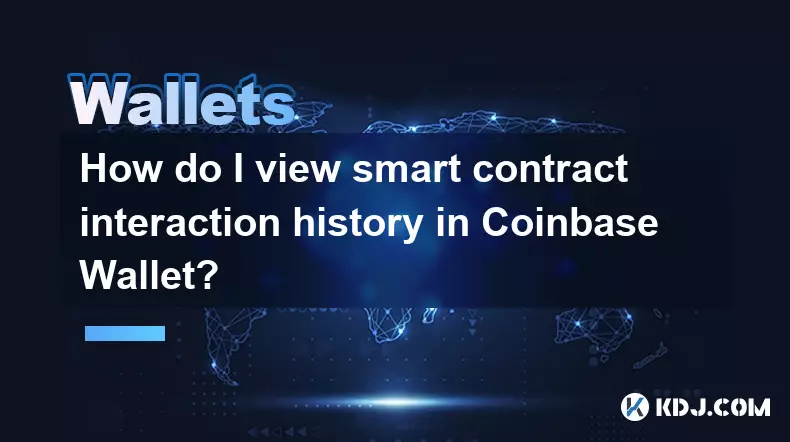
How do I view smart contract interaction history in Coinbase Wallet?
Sep 24,2025 at 01:36am
Accessing Smart Contract Interaction History in Coinbase Wallet1. Open the Coinbase Wallet application on your mobile device and log in using your cre...
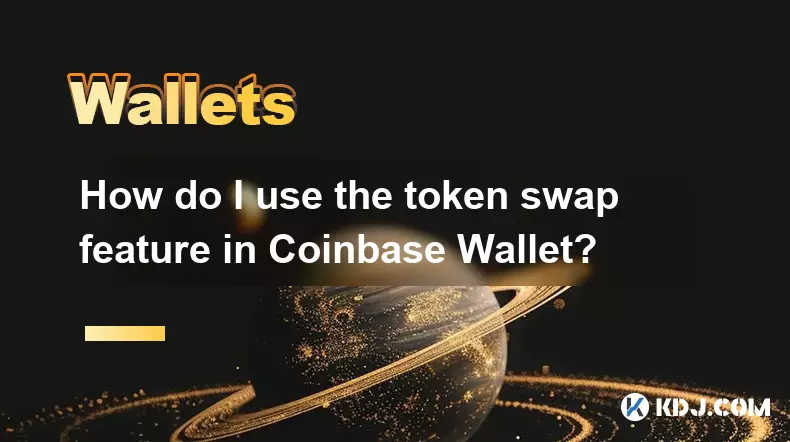
How do I use the token swap feature in Coinbase Wallet?
Sep 24,2025 at 05:00pm
Understanding Token Swaps in Coinbase Wallet1. The token swap feature in Coinbase Wallet enables users to exchange one cryptocurrency for another dire...
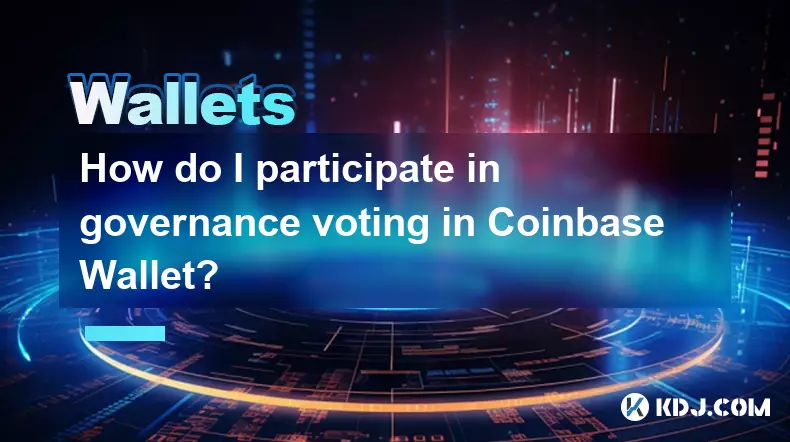
How do I participate in governance voting in Coinbase Wallet?
Sep 25,2025 at 01:55pm
Understanding Market Volatility in the Crypto Space1. Cryptocurrency markets are known for their extreme price fluctuations, often driven by sentiment...

How do I set up a custom RPC node in Coinbase Wallet?
Sep 24,2025 at 12:00pm
Understanding Custom RPC Nodes in Coinbase Wallet1. A custom RPC (Remote Procedure Call) node allows users to connect their Coinbase Wallet to a block...
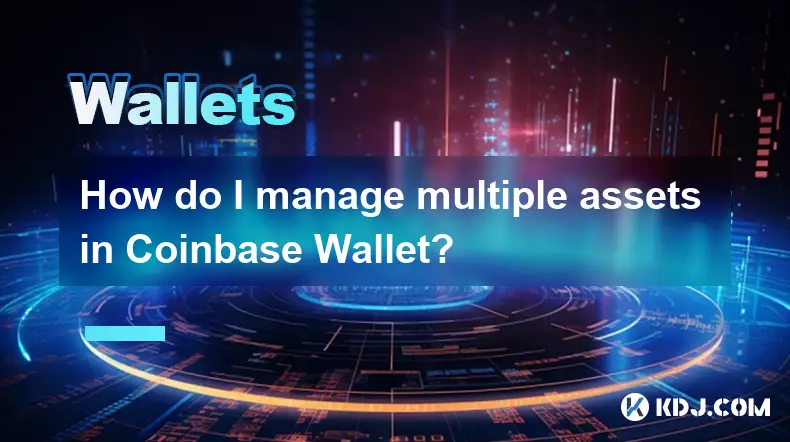
How do I manage multiple assets in Coinbase Wallet?
Sep 23,2025 at 10:00am
Understanding Multi-Asset Support in Coinbase Wallet1. Coinbase Wallet allows users to store a wide variety of digital assets beyond just Bitcoin and ...
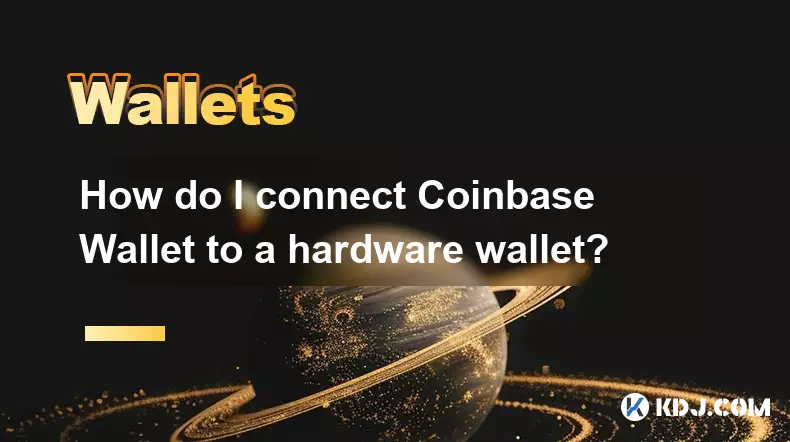
How do I connect Coinbase Wallet to a hardware wallet?
Sep 26,2025 at 02:54am
Connecting Coinbase Wallet to a Hardware Device1. Open the Coinbase Wallet app on your mobile device and ensure it is updated to the latest version. N...

How do I view smart contract interaction history in Coinbase Wallet?
Sep 24,2025 at 01:36am
Accessing Smart Contract Interaction History in Coinbase Wallet1. Open the Coinbase Wallet application on your mobile device and log in using your cre...

How do I use the token swap feature in Coinbase Wallet?
Sep 24,2025 at 05:00pm
Understanding Token Swaps in Coinbase Wallet1. The token swap feature in Coinbase Wallet enables users to exchange one cryptocurrency for another dire...

How do I participate in governance voting in Coinbase Wallet?
Sep 25,2025 at 01:55pm
Understanding Market Volatility in the Crypto Space1. Cryptocurrency markets are known for their extreme price fluctuations, often driven by sentiment...

How do I set up a custom RPC node in Coinbase Wallet?
Sep 24,2025 at 12:00pm
Understanding Custom RPC Nodes in Coinbase Wallet1. A custom RPC (Remote Procedure Call) node allows users to connect their Coinbase Wallet to a block...

How do I manage multiple assets in Coinbase Wallet?
Sep 23,2025 at 10:00am
Understanding Multi-Asset Support in Coinbase Wallet1. Coinbase Wallet allows users to store a wide variety of digital assets beyond just Bitcoin and ...

How do I connect Coinbase Wallet to a hardware wallet?
Sep 26,2025 at 02:54am
Connecting Coinbase Wallet to a Hardware Device1. Open the Coinbase Wallet app on your mobile device and ensure it is updated to the latest version. N...
See all articles










































































